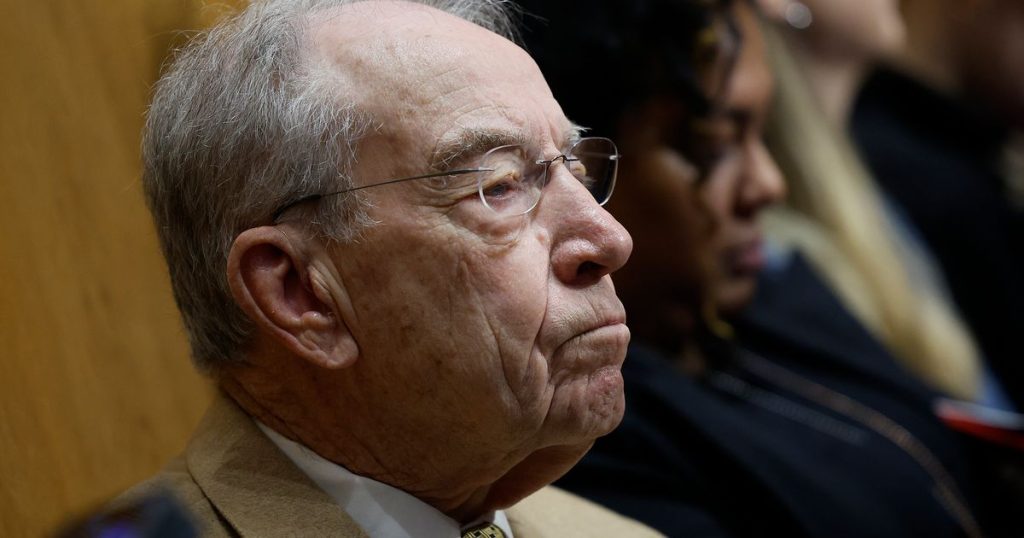The Trump Administration’s Inspector General Firings: A Call for Accountability
In a series of moves that have sparked concern, the Trump administration has faced scrutiny for its recent firings of top watchdogs, crucial for uncovering misconduct within federal agencies. Notably, President Trump’s dismissal of the inspector general for the U.S. Agency for International Development (USAID), Paul Martin, has raised eyebrows. This action followed a damning report highlighting the administration’s mishandling of foreign aid, which jeopardized nearly $489 million in food assistance. The report revealed significant delays and confusion in aid distribution, exacerbating the risk of spoilage and mismanagement. Such actions have drawn criticism for bypassing legal requirements, underscoring concerns about transparency and accountability.
Legal Violations and Congressional Oversight
At the heart of the issue is the administration’s failure to adhere to legal protocols. The law mandates a 30-day notice period to Congress before dismissing an inspector general, along with providing explicit reasons for such action. This process ensures accountability and allows for congressional oversight, crucial for preventing unchecked executive power. Senator Chuck Grassley, a staunch defender of these watchdogs, pointed out that while he might agree with the decision to remove the inspector general, the method was flawed. He emphasized the importance of following legal procedures, suggesting that administrative leave could be a viable alternative during the notice period. His comments highlight the delicate balance between executive authority and congressional checks and balances.
Senator Grassley’s Stance: A Call for Compliance
Grassley, a long-time advocate for the role of inspectors general since their establishment post-Watergate, expressed concerns about the abrupt firings. Despite his agreement with President Trump’s decision to remove Paul Martin, he stressed the necessity of following proper legal channels. Grassley’s approach reflects a commitment to institutional integrity, illustrating that accountability should not be Sacrificed for expediency. His recent letter to President Trump, seeking explanations for the firings, remains unanswered, adding to the intrigue surrounding their interactions. This exchange, coupled with their recent meeting, paints a complex picture of their relationship, blending personal rapport with professional responsibilities.
Impact on Aid Programs and Global Efforts
The repercussions of the administration’s actions extend beyond legal concerns, affecting the efficacy of USAID programs. The inspector general’s report detailed how the agency’s near-shutdown and aid freeze led to widespread operational chaos. Emergency food assistance, while initially exempt, faced significant disruptions, with shipments delayed worldwide. This uncertainty placed millions of dollars’ worth of aid at risk, threatening the well-being of vulnerable populations reliant on such assistance. The impact on global initiatives, especially in countering adversaries like China and Russia in regions such as Africa, raises questions about U.S. strategic interests and the potential decline of its influence.
Republican Support and Shift in Stance on USAID
Ironically, Republican support for dismantling USAID contrasts sharply with past praise for the agency’s role in global development and diplomacy. Figures like Senator Lindsey Graham, who once hailed USAID as "a force for good," now critique its spending, reflecting a broader shift in party stance. Similar sentiments from Secretary of State Marco Rubio and Ivanka Trump further highlight the agency’s complexities and the evolving political landscape. This change in perspective, despite USAID’s historical contributions, suggests a reevaluation of U.S. priorities and the role of foreign aid in contemporary geopolitics.
Ongoing Legal Battles and Agency Future
The situation remains unresolved, with a federal judge ordering the reinstatement of some USAID workers pending a court ruling on the legality of the agency’s closure. However, the administration continues to block access to the Washington headquarters, reallocating space to U.S. Customs and Border Protection. This move symbolizes a broader shift in policy priorities, away from international development and towards domestic security. The legal challenges and operational disruptions underscore the high stakes involved, reflecting broader debates on the role of U.S. aid, executive power, and the balance between accountability and autonomy in governance.
In conclusion, the Trump administration’s actions regarding USAID and its inspector general highlight critical issues of legal compliance, accountability, and the future of U.S. foreign aid. As the situation unfolds, the interplay between executive authority, congressional oversight, and judicial intervention will shape the landscape of U.S. governance, transparency, and global influence.
